Build Rome
-
Definitely looks good - only be extra careful with any additional, "imaginary" stuff. That can be the most questionable part of the whole reconstruction and you can get the most critiques on those.
-
Hi Marco.
Your work is looking great!
How did your german friend convinced you that the main part of the villa was in the oppio hill?
There are some structures north of the bath that have the same orientation has the domus aurea, but i always thought it made more sense to think that the main building was in the palatine, and the recent find of the rotating room near the temple of heliogabalus seemed to confirm this. With the damnatio memoriae on Nero, the first thing to be destroyed would be the heart of the Domus Aurea, and trying to further erase his memory the Flavian emperors, built the Domus Flavia over it. It seems more likely rather than the Domus Aurea being abandoned for 40 years until Trajan built his baths.
What do you think?
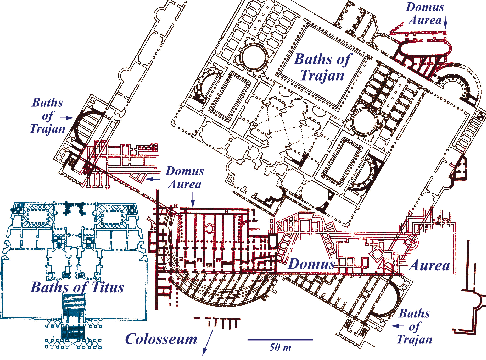
-
You are both right, but I didn't mean the overall main building, if there was one, but the main body of the Oppio wing. I arrived at the same conclusions as Elysium, and here is the result. The back line of the building is pretty certain, because there is another house of Nero's era across the street.
As for the rotating room, it has been placed everywhere, and I am not yet sure that what they found was the real one. It's an impressive find, but it's difficult to decide what it really is. What they say was proof of the existence of ball bearings is rubbish ...
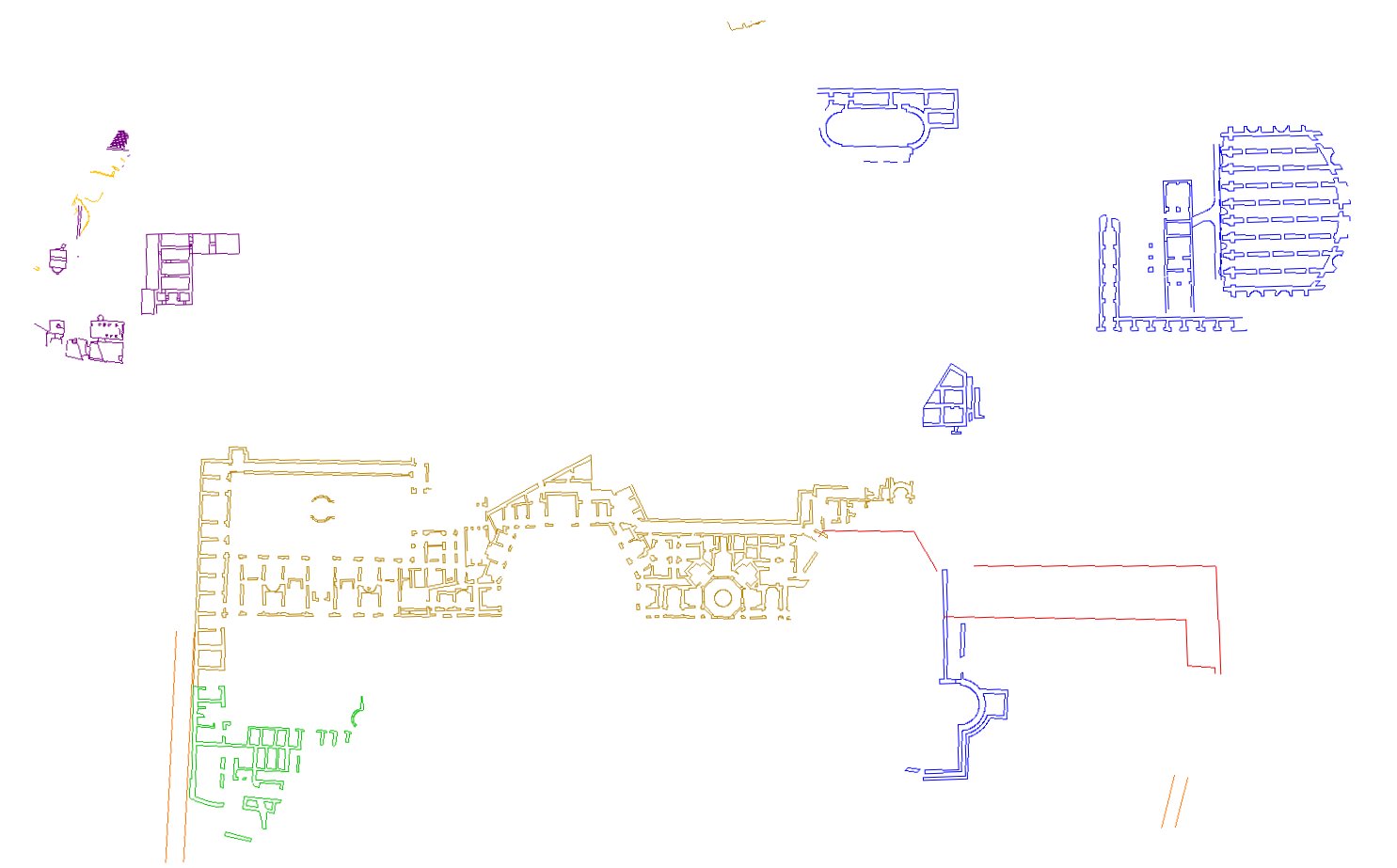
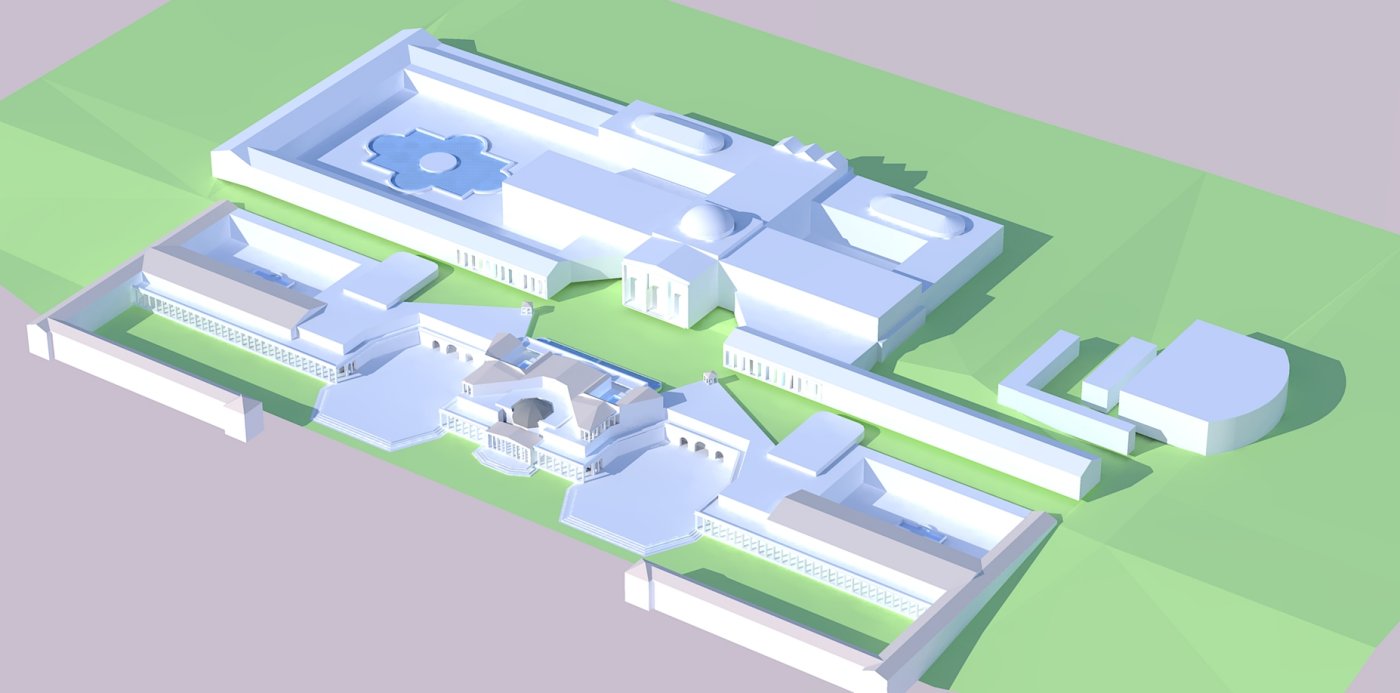
-
Started with Titus's baths. Extruded Palladio's reconstruction, but some things are fishy. I think the whole thing is aligned with the rest of the Oppio wing, they were initially intended (probably) as Nero's private baths. Don't think they were that symmetrical, the slant on the right side doesn't make sense. And the front abutting on the lake shore (or later in front of the Amphiteater)must be rethought ...
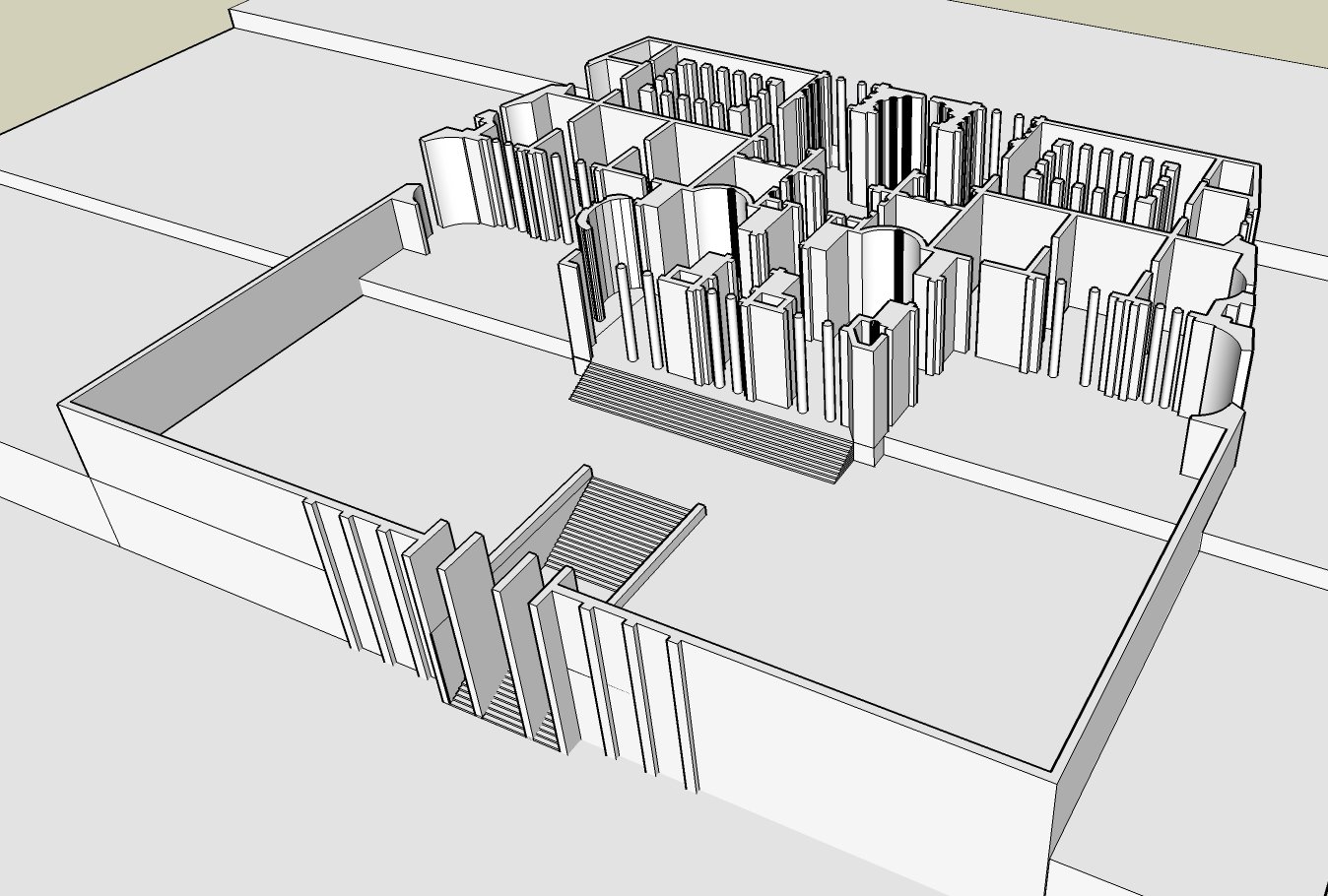
-
Well, it's growing. Now I have to solve the connection between the termae and the lacus, and with the Via Labicana. I'll try a solution with an overpass, it's easy since the huge staircase allows for it, 12 meters of difference between the courtyard and street level. But maybe that's too modern ...
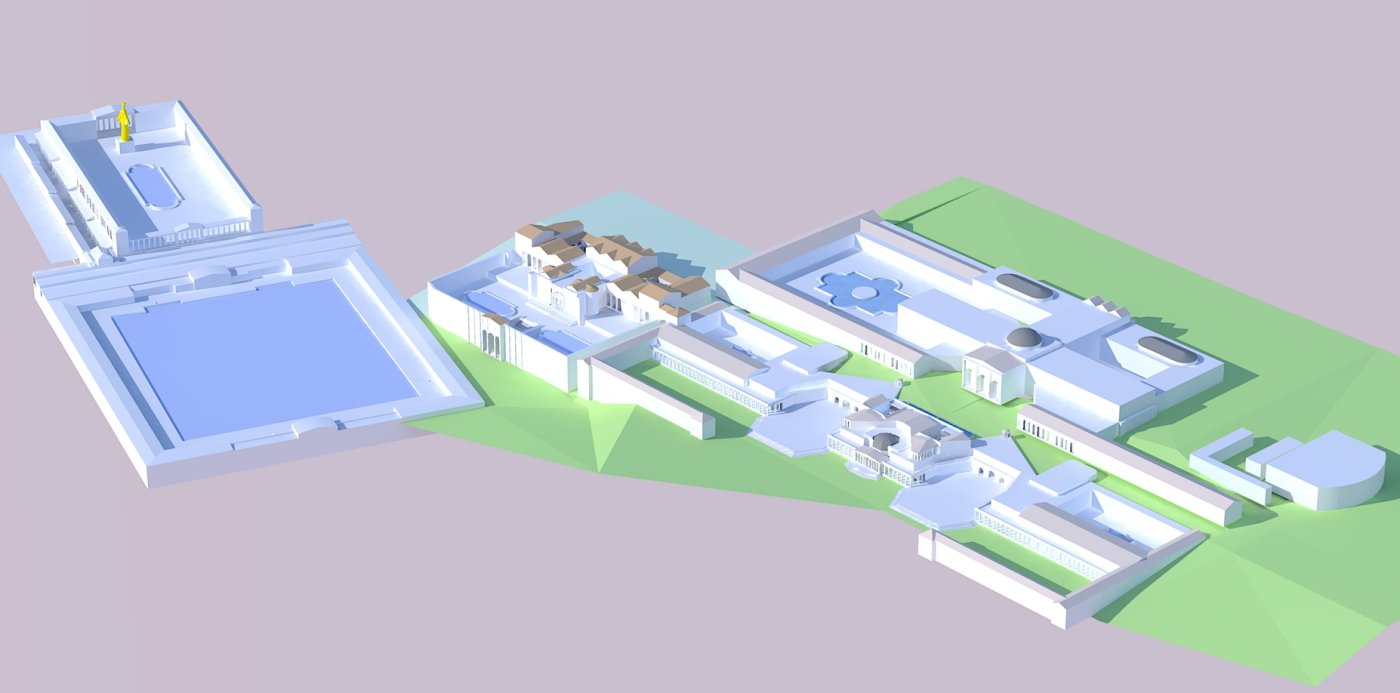
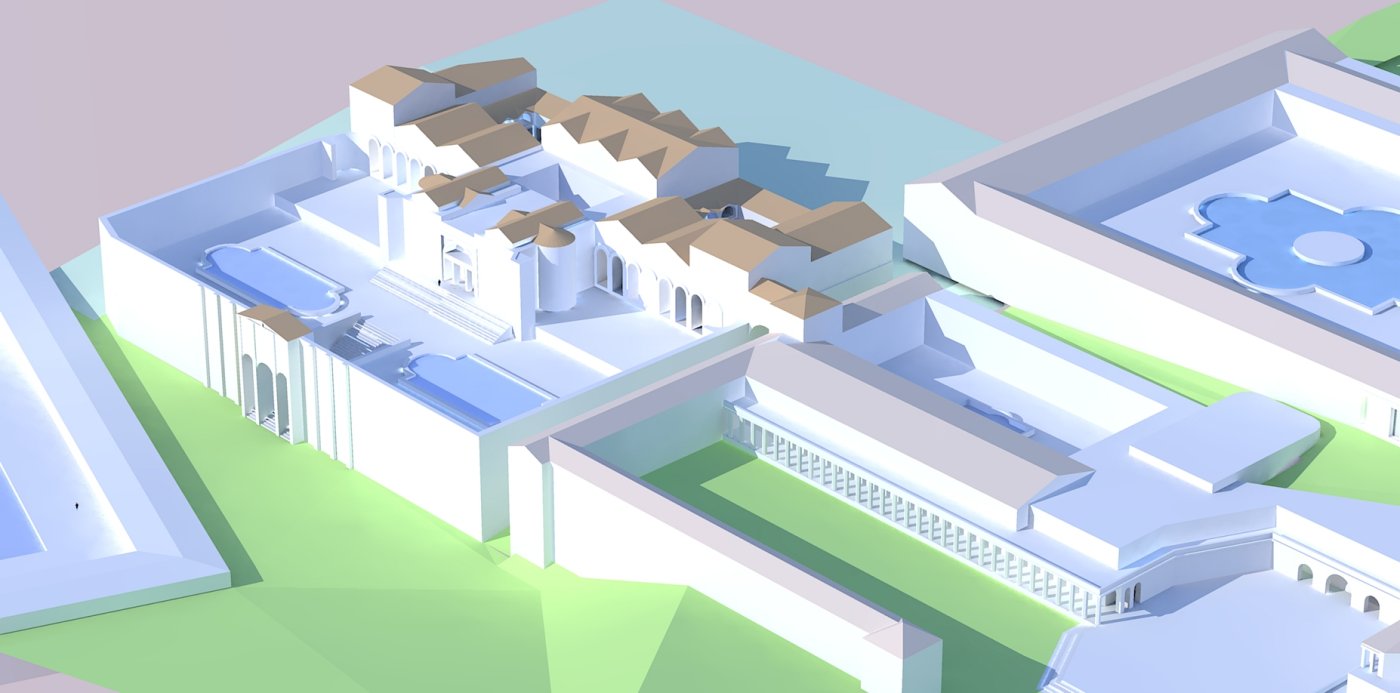
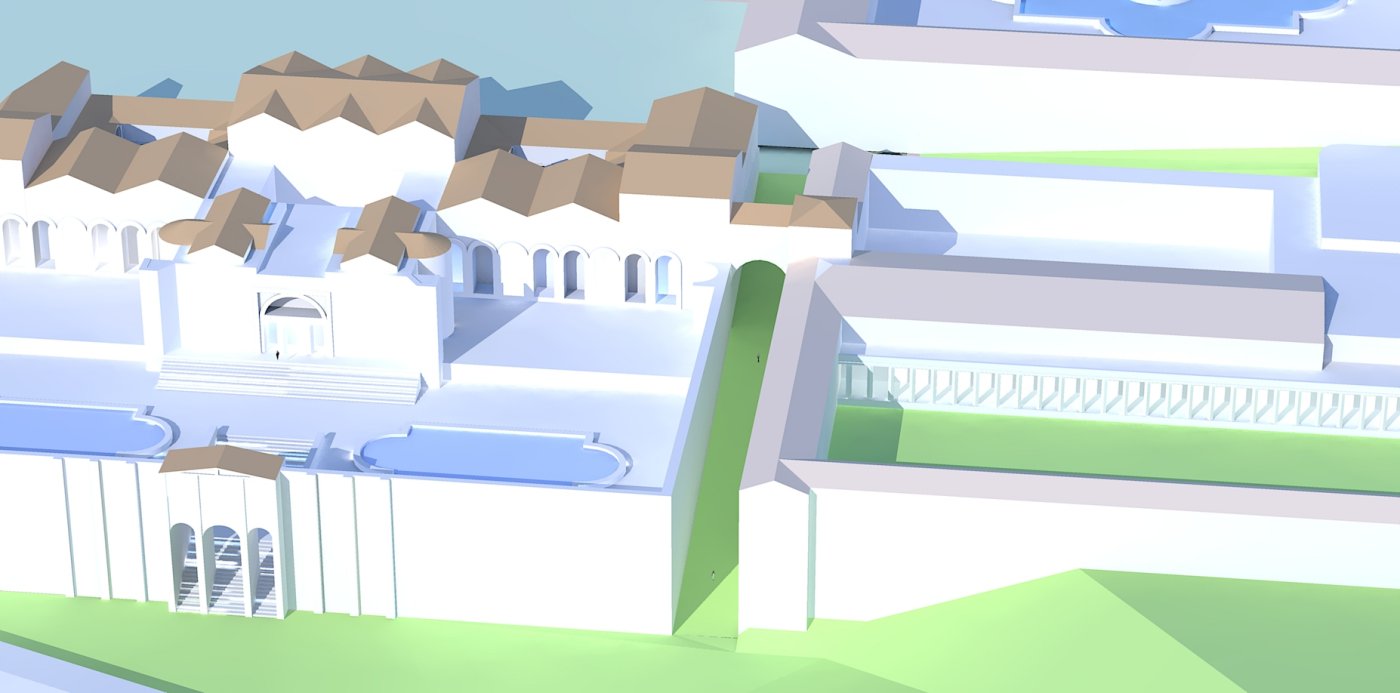
-
Definitely gaining shape, please, keep posting!

-
This is what I had in mind for the connection. The main function is as struts, to keep the terrain with a 12 m. dislevel from falling over. The Via Labicana would go through the double arch overpass. Two lateral ramps go down to street level, and one goes on the overpass to the lake. Of course this is roofless, to show the pathways. Walls and roofs will monumentalize it.
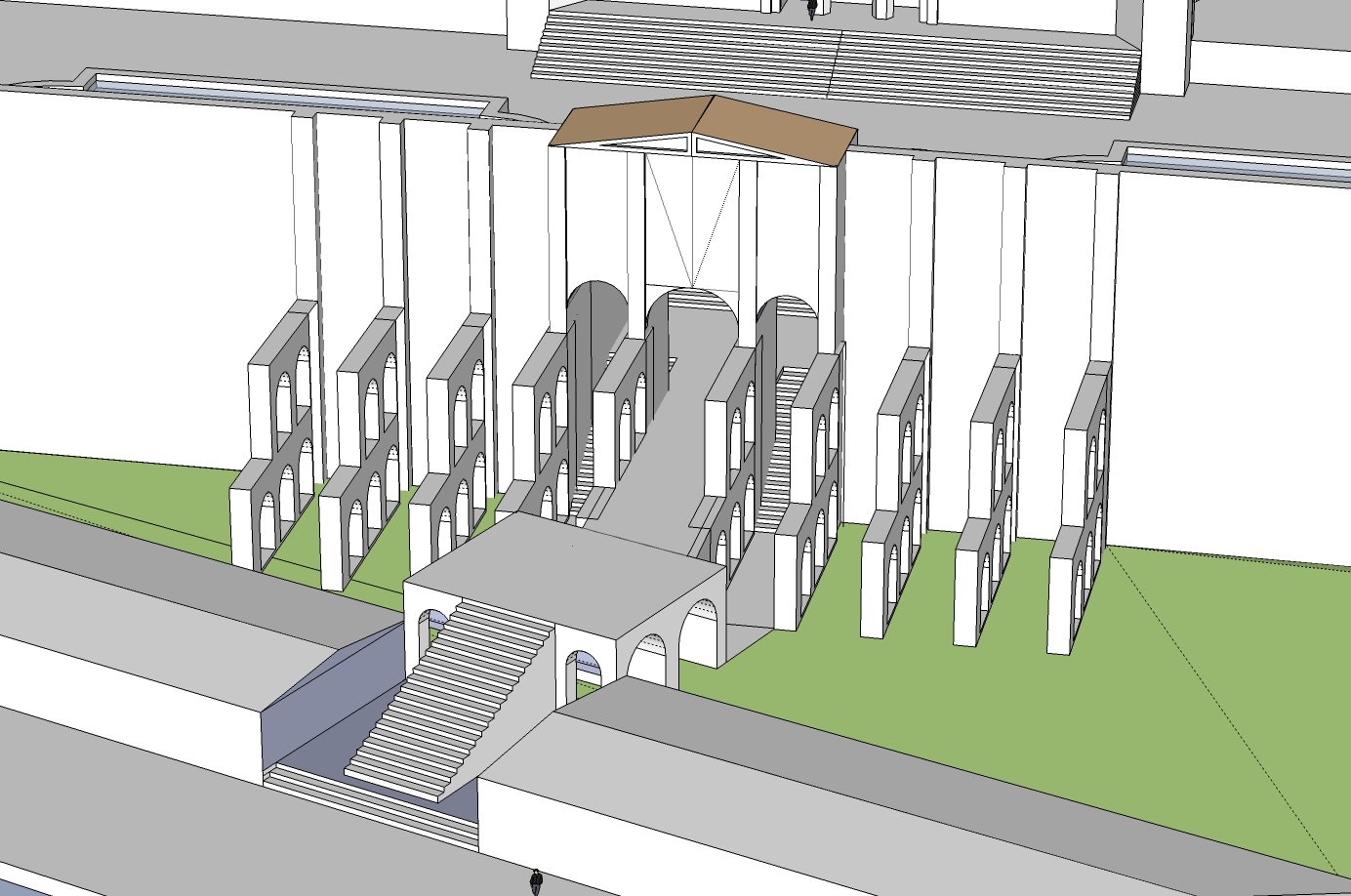
-
I keep reading you (and enjoying). I don't have the time I had some years ago to get involved with you, but at least I can tell you that you are doing it very well


Meanwhile I will continue with a little temple here, a theatre there...

-
Muchas gracias, Pichuneke. Pero te confieso que la cosa se està poniendo difìcil. Ya veremos.
This is what I ended up with for the access to the Termae of Titus. And it took me a lot of work too ...
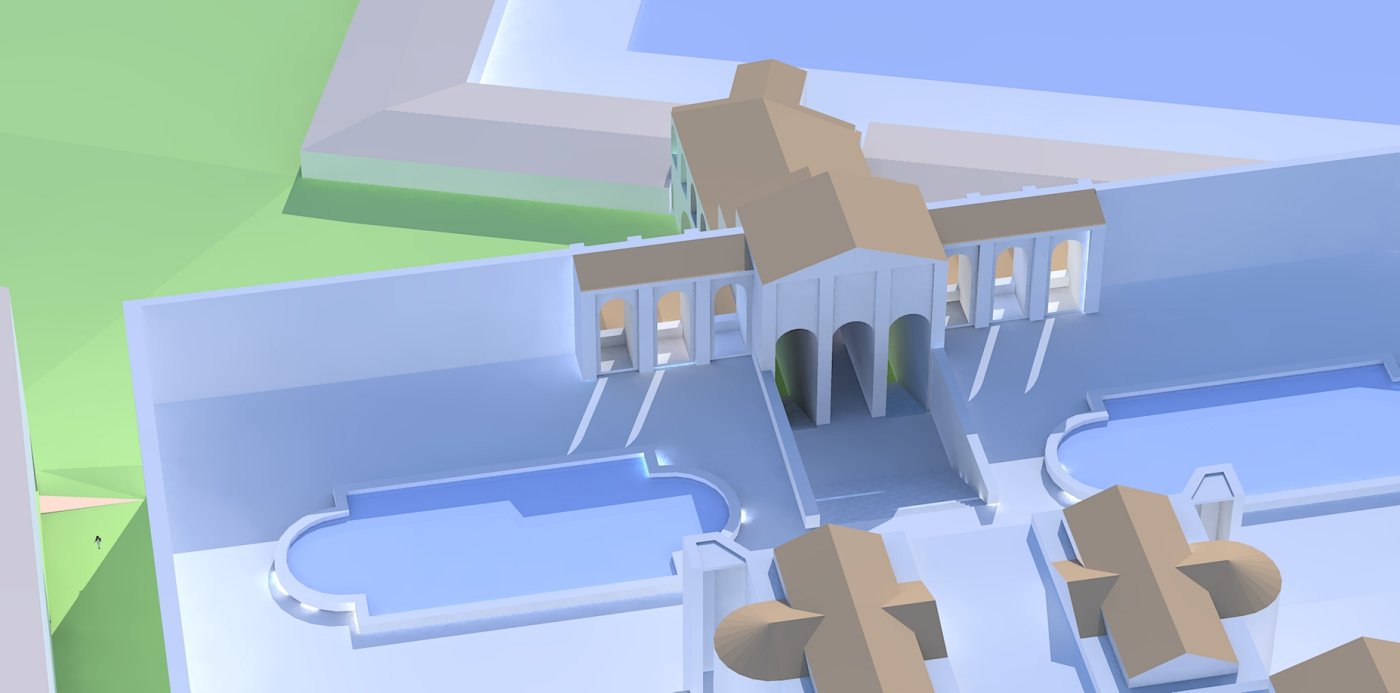
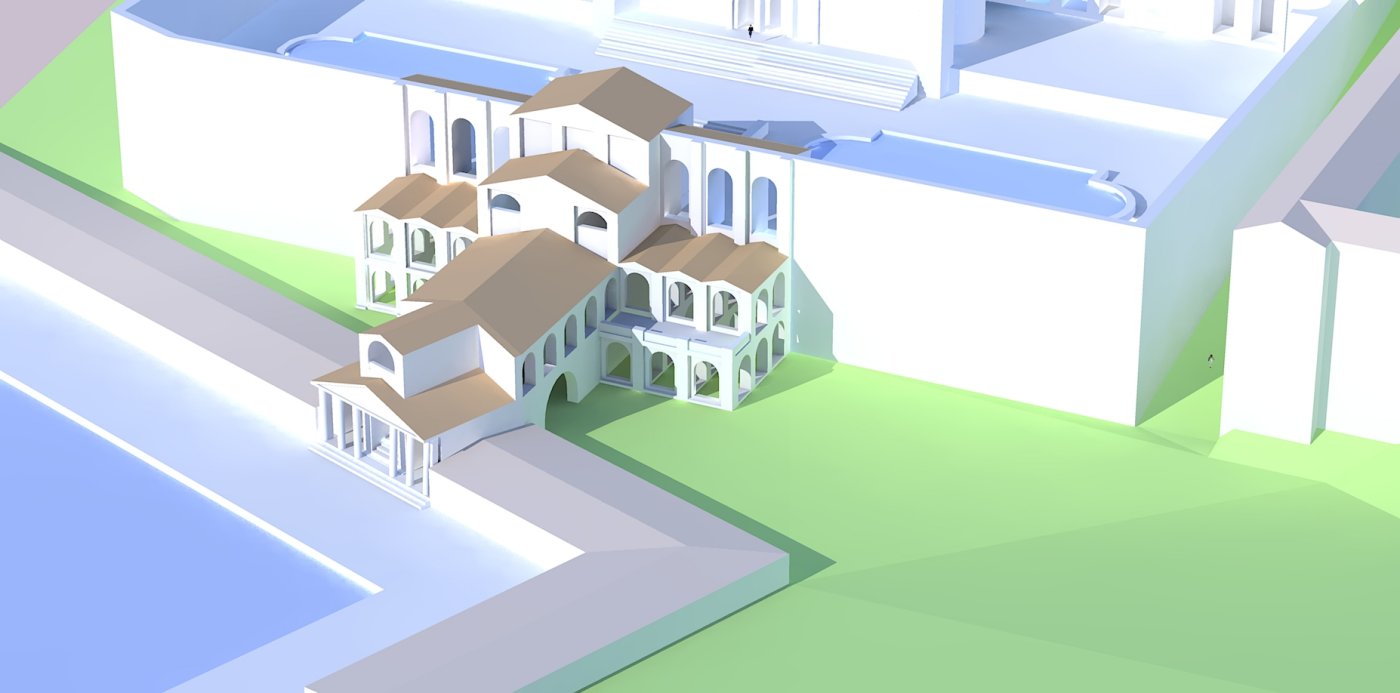
-
Changed some details on the lakefront ...
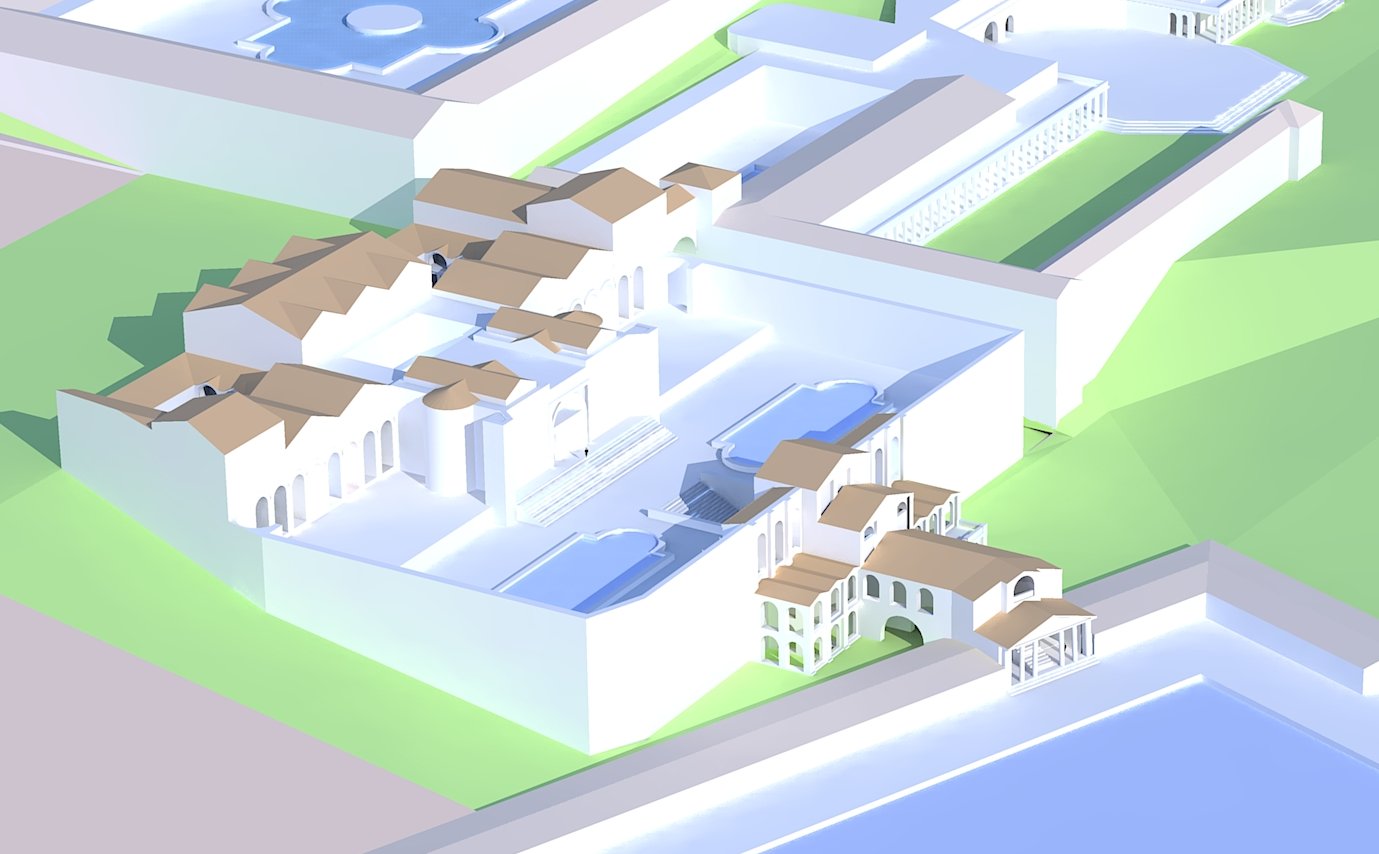
-
What can I say... every time I see a new model from L.VII.C...
Colosseum
-
I started with the Claudianum, and it won't be easy. Nero's mother started the Claudianum as a worship area for her deceased husband Claudius (probably killed by her) but the temple was just growing at the time of the fire. I am now trying to model Nero's situation. It was an important part of the Domus Aurea, sort of a leisure residence, with gardens and water games. He razed what existed of Claudiu's temple; after his death the flavians razed his residence and rebuilt the temple.
The acqueduct Celimontano arrived at its back, and gave it plenty of water. After being used for fountains etc. the water went down to the lake, probably through a monumental fountain. The Claudianum stands at 49 m., the lake at about 21, so there are 28 m. of dislevel. A piece of a marble ship bow with a boar's head was found there, so I imagined a whole stone ship, much like that in the Tiber island.
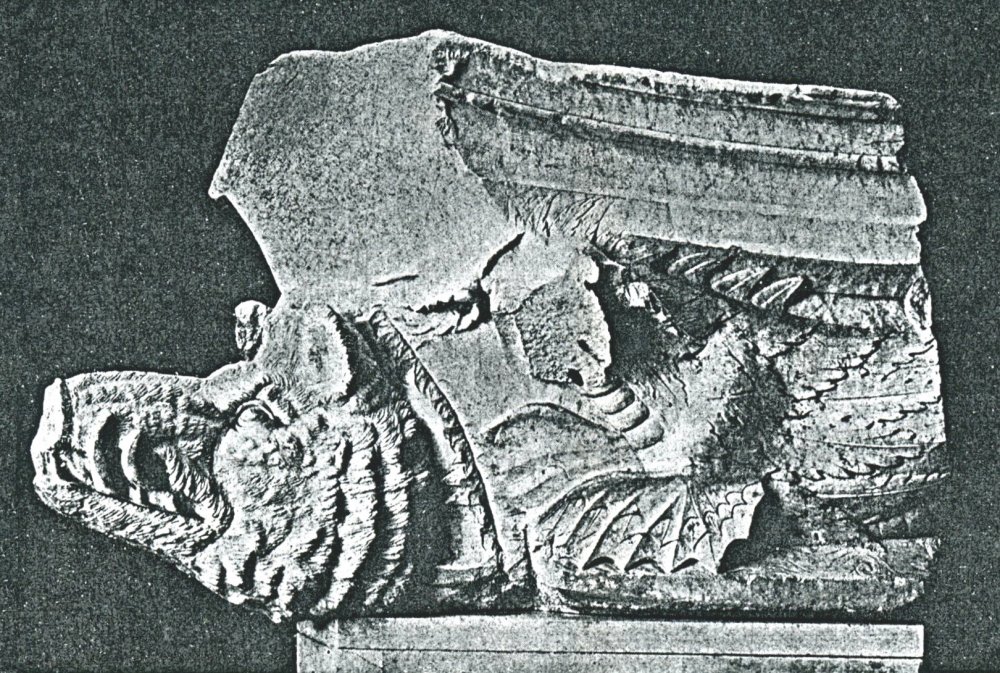
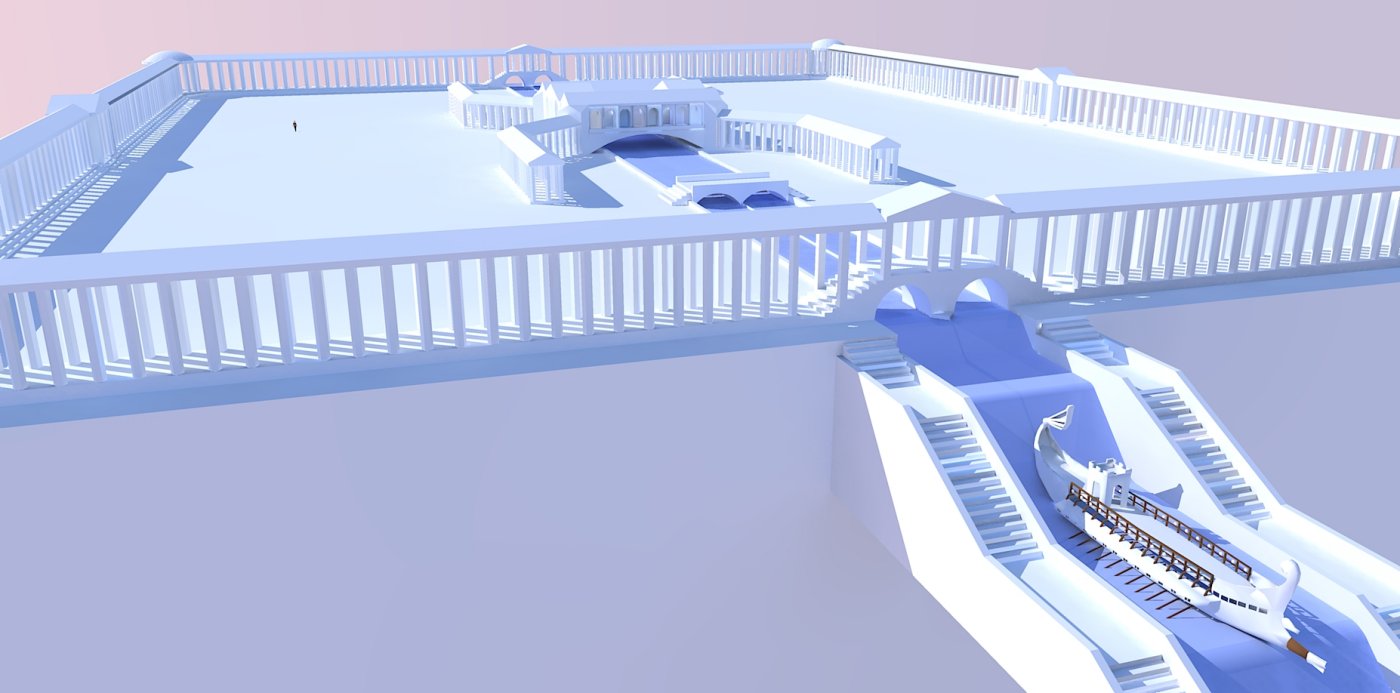
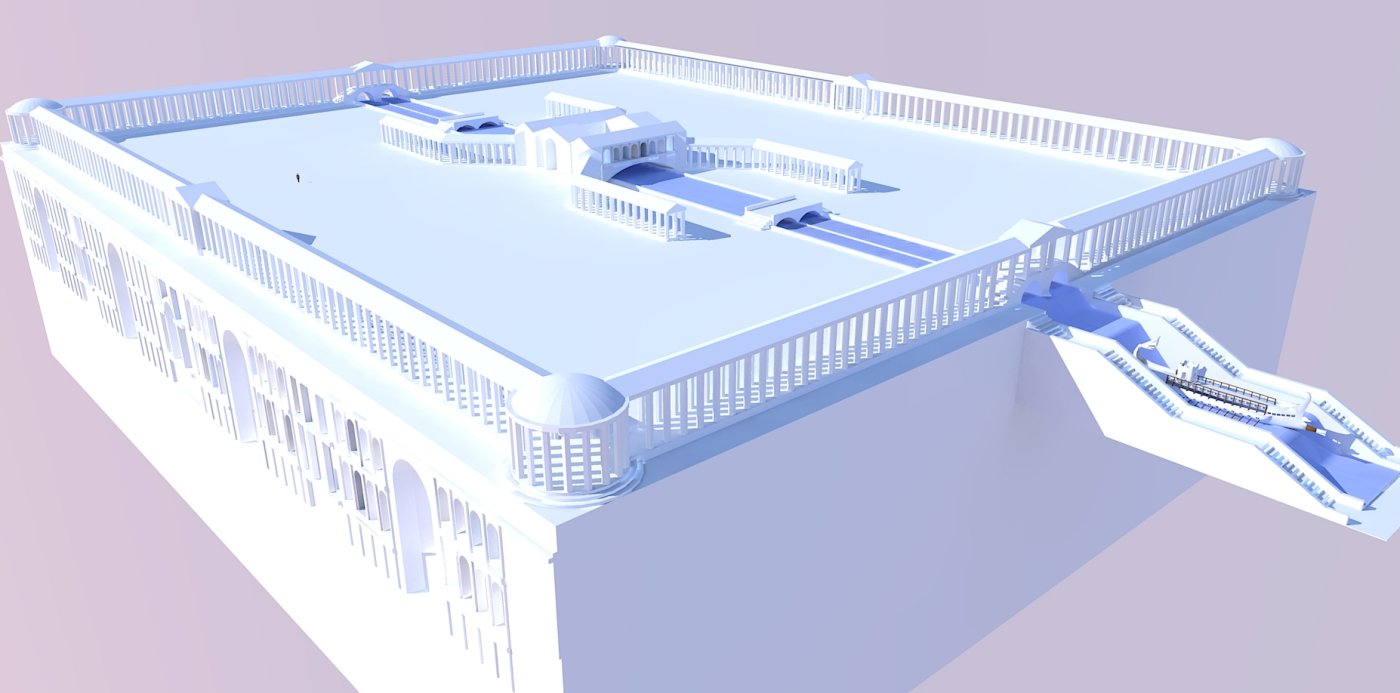
-
And here it is what it looks like when placed where it belongs. Lots of things to revise. The residential part is a bit too spiderlike, the channel too straight, the staircase too imposing, the connection with the lake unresolved, and so on ... Suggestions welcome ...
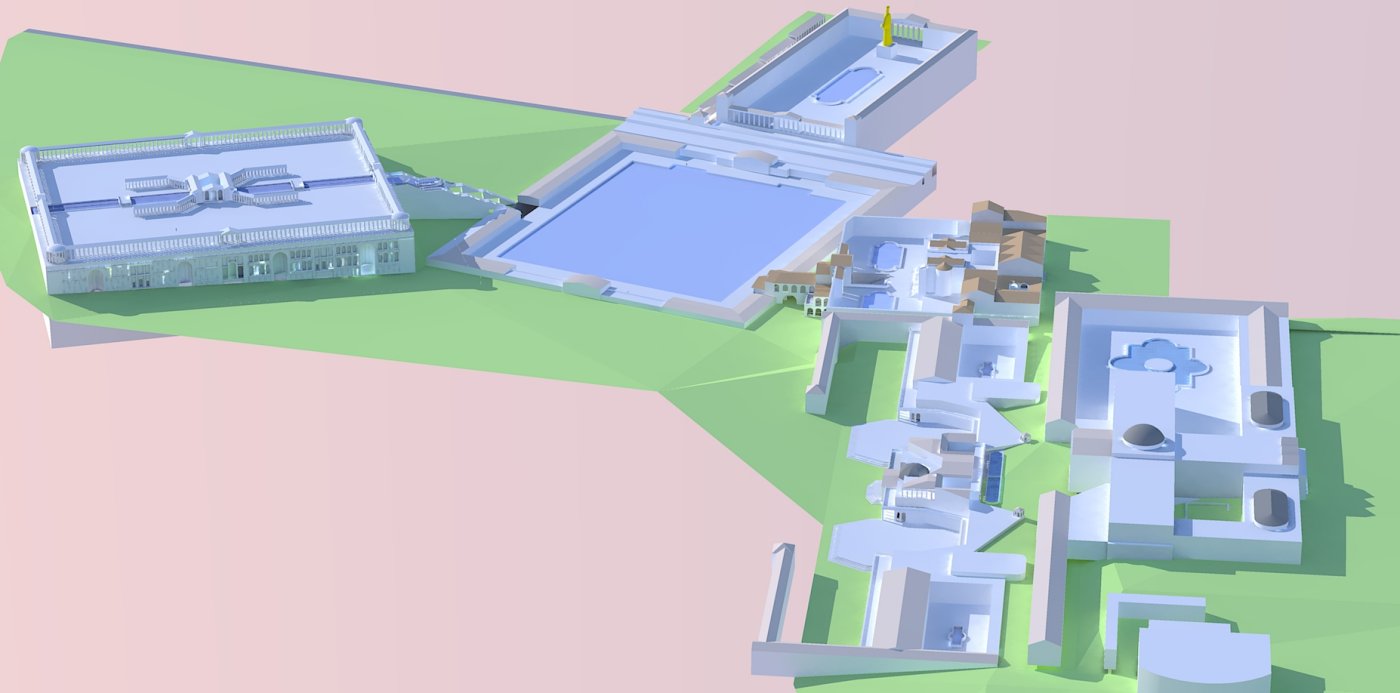
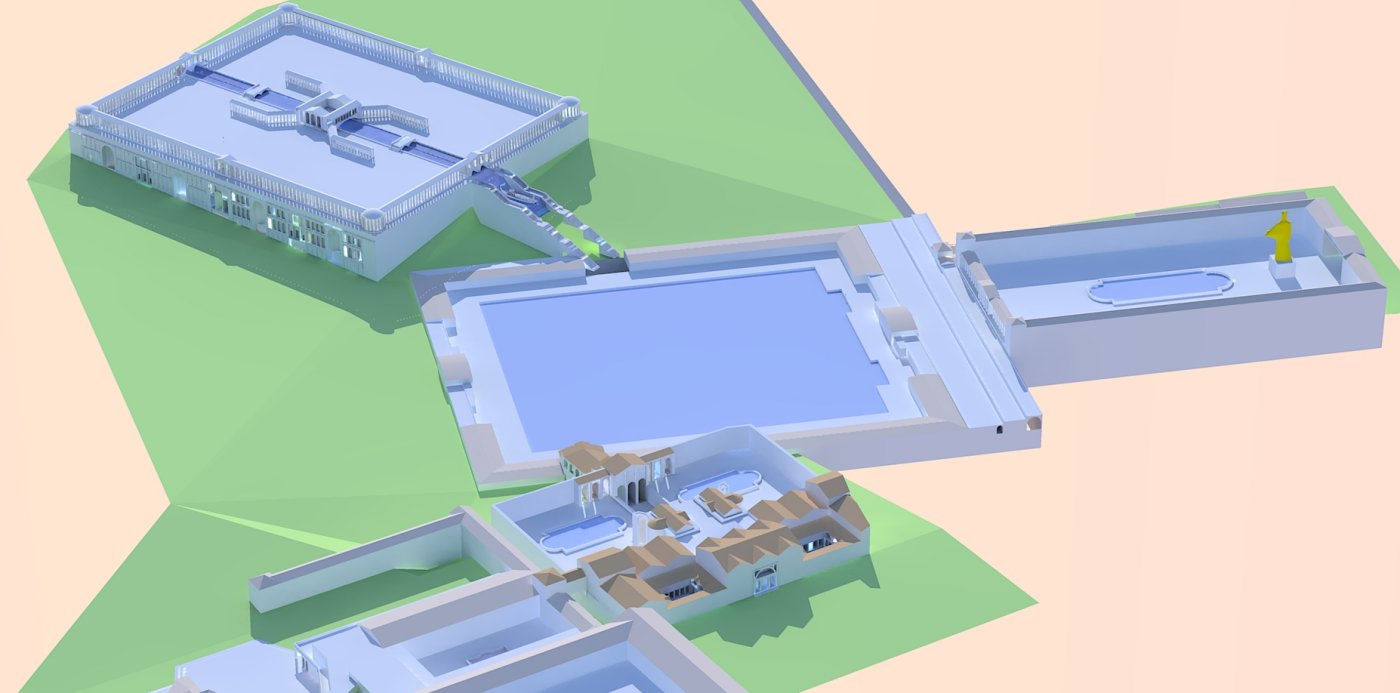
-
A small pool in the connection with the lake? I don't know if there is an archeological basis for that, but it seems the most logical solution to me. You know, connecting the waterfall and the lake.
-
I made an interesting discovery, examining with more attention the map of Lanciani. He registers a XVII century document that shows a sudden change in direction in the retaining walls of the Claudianum, aiming in a perfect perpendicular to the lake. If we take that into account, the access on the lake becomes almost perfectly symmetrical with the access to the termae of Titus. It can't be just a coincidence. I'll work on that.
Thanks Pichuneke (my basic language is spanish too, but let's stick to english), The Coliseum you linked to in your mail is really impressive, like all the works of our friend.
As for the pool, I don't think it fits. What I had in mind were some large stone pipes, spewing water with force into the lake. The water comes from an acqueduct straight from Porta Maggiore, and by association I thougt of the tomb of the breadmaker ...
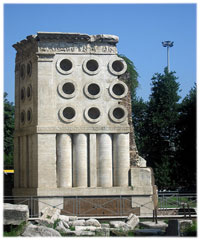
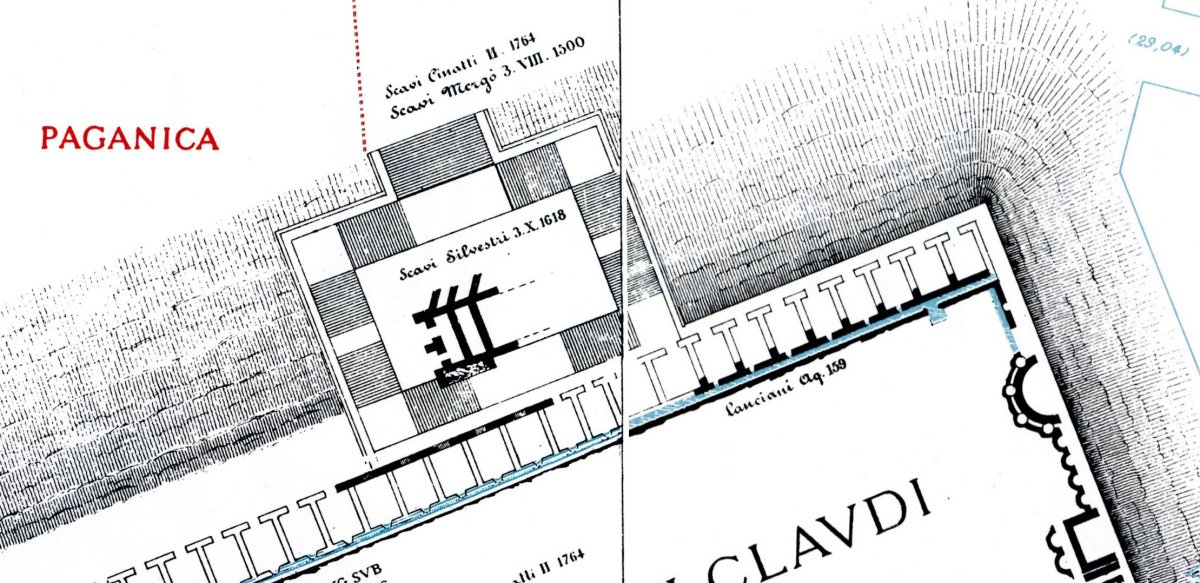
-
It has not information about Domus Aurea, but I believe that this account of Flickr will be very interesting for you.
As for my english, I have limited skills
 , I always have to look at the english-spanish dicitionary, but at least I can make myself understood
, I always have to look at the english-spanish dicitionary, but at least I can make myself understood 
Bye from Spain, hepf.
-
Thank you. Martin Conde is a great guy, and my wife has relied on him for a long time to illustrate her excavations of the Meta Sudans.
Here is another image to explain the relevance of what I found.
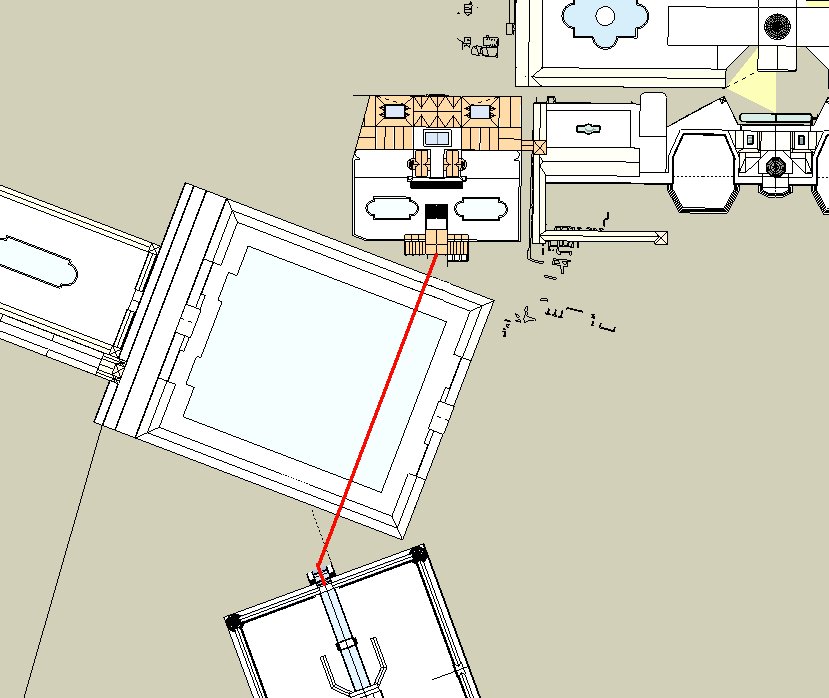
-
hepf, I just want to say that I enjoy reading about roman art, archeology, and so on, but I am not an archeologist. It's just a Hobby.
Respect Meta Sudans I have been reading about the excavations in past years, and you say that... It's a honour to write here!

In my free time I do archeological 3D for fun, but fortunately I have work now, so they are a bit abandoned...
It's very interesting that simmetry. A friend, archeologist, gave me some data about a building, and doing a fast 3D model you can discover things that you would not have seen without it. You are doing first level investigation.
-
For the Domus Aurea, this video by Viscogliosi & Co is one of the best things available:
http://espresso.repubblica.it/multimedia/5289136
It has some imprecisions, for instance the temple wasn't on the Claudianum until later, but on the whole it's impressive. -
It's an amazing video.
I see that he has used textures from books from the XIX century. I have most of them, but I don't remember where I downloaded them (I found them on the net). If you want, I can send you an email.
It's not roman art (greek, persian...) , but I believe that this link will be interesting for you:

Owen Jones: The Grammar of Ornament
Tessellation related Photo plates from Owen Jones' 1853 classic book, "The Grammar of Ornament". Sourced from the University of Wisconsin's digital archive of decorative arts: http://digital.library.wisc.edu/1711.dl/DLDecArts.GramOrnJones
Flickr (www.flickr.com)
Advertisement








